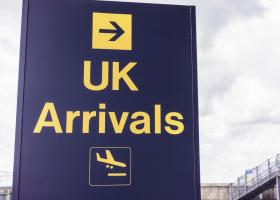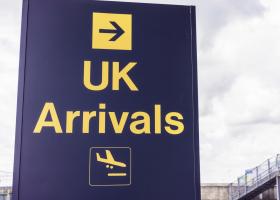After the Article 50 judgment, what comes next?
On 3rd November 2016 the High Court ruled that it is Parliament that must decide when to trigger TEU Article 50 for the UK to withdraw from the European Union and not the Government using the royal prerogative. The case has inevitably attracted a great deal of comment some of it well informed and constructive but some of it less so. Barrister Ian Wright, an expert in business immigration law, considers the judgment and its consequences.
The official judgment covers 41 pages and is worth reading in full. A good starting point is to identify the ‘sole question’ raised by the application - whether the Crown, acting through the executive government of the day, was entitled to use its prerogative powers to give notice under Article 50 for the UK to cease to be a member of the EU. It was common ground between all the parties to the application that the Referendum Act 2015 did not include any statutory power to give notice under Article 50. So the court had to consider the existing constitutional position and apply those principles to the European Communities Act 1972.
The usual position was identified by the court as being that, unless Parliament legislates to the contrary, the Crown should not have the power to vary the law of the land by the exercise of prerogative powers. The court recognised that matters of international relations, such as the making of treaties, fell within the Crown’s prerogative, but such matters did not extend to bring about major changes in domestic law. Subordination of the Crown to parliamentary legislation was identified as being the foundation of the rule of law.
The court then went onto consider the provisions of the 1972 Act. It found that it was clear that Parliament intended to legislate so as to introduce EU law into domestic law and that the effect could not be undone or overridden by the Crown by the exercise of prerogative power. That law included the rights enjoyed by British citizens and companies in relation to their activities in other Member States. The 1972 Act did not provide for the Crown to undo those rights. The absence of any such power in the 1972 Act meant that the Crown did not have prerogative power to give notice under Article 50.
The consequence of the judgment is that only Parliament (through both houses) can give notice under Article 50 to withdraw from the European Union. The Secretary of State has appealed under the leapfrog provisions to the Supreme Court which will hear the case before the end of the year.
If that appeal is unsuccessful, then the Government will have to ask Parliament to give notice. It is unclear at the moment whether notice could be given by a simple vote of both Houses of Parliament or whether the 1972 Act should be repealed beforehand. If a simple vote or ‘resolution’ is sought, it is likely that both Houses will respect the outcome of the referendum. However, it is also possible that the outcome of such a vote or resolution will itself be challenged. What is clear is that at some point the much heralded ‘Great Repeal Bill’ will need to be enacted before withdrawal can take place.
Members of Parliament who support the court’s interpretation have indicated they wish to have an opportunity to discuss the Government’s negotiating objectives before voting to give notice under Article 50. At the moment, the Government has not revealed its hand. I would suggest that if some details can be provided to Parliament then notice could be given quite quickly. Politically, rather than legally, the issue is really that the UK voted to leave the EU but did not vote to replace membership with any particular arrangements to govern its relationship with the remaining 27 member states.
“Politically, rather than legally, the issue is really that the UK voted to leave the EU but did not vote to replace membership with any particular arrangements to govern its relationship with the remaining 27 member states.”
In future articles I will consider possible future models for the UK’s trading arrangements with those remaining 27 Member States. I will also consider what steps businesses should take now to protect the right of EU nationals to reside and work in the UK.

Ian Wright - Business Immigration Law Barrister
Editor's picks



